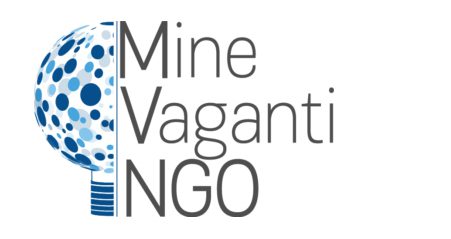KA2 AD INN BEE
Create new opportunities for economically disadvantaged adults and youth with a focus on the “Blue Economy”
The project “Blue Economy Entrepreneurship” aims to create new training opportunities for low-skilled adults facing economic hardship living in European islands, with a focus on the blue economy and entrepreneurial skills. The project focuses on Blue Economy coastal tourism and its target group, varied in ages between 18 and 35, who face economic hardship and fewer educational opportunities, to progress toward qualifications and enter the labour market in a more accessible way, validated through the Entrecomp framework and the Europass, to ensure appropriate qualifications for use after the project. the project wants to remove the barriers face to more inclusive working environments, responding to the needs of islands communities
Start: 01-09-2022 – End: 31-08-2024
Project Reference:
EU Grant: 204.000 euros
Programme: Erasmus+
Key Action: KA220
Action Type: Adult and Youth mobility
Project Partners:
- F6S Network Ireland Limited (E10264497 – IE)
- Skills Zone Malta co. Limited (E10226210 – MT)
- Mine Vaganti NGO (E10124380 – IT)
- S.E.A.L CYPRUS(CYPRUS ORGANIZATION FOR SUSTAINABLE EDUCATION AND ACTIVE LEARNING) (E10002144 – CY)
- STARTUP MADEIRA – MORE THAN IDEAS, LDA (E10147797 – PT)
Project TOPICs:
The project will offer arena for entrepreneurial learning and entrepreneurship education, employability and last but not least tackling geographical remoteness and involving rural areas
TPMs
- F6S: Hosting of the Kick-off Meeting in M1
- MVNGO: Hosting the Mid-Term Meeting in M12
- Sills Zone Malta: Hosting in the Final Evaluation Meeting
TARGET GROUPs
The target groups of the project are:
- Adults facing economic difficulties living in European Islands;
- Young unemployed adults aged 18-35 facing economic difficulties and fewer educative opportunities;
- Unemployed and/or low-skilled young adults based in remote maritime areas;
PROJECT’S OBJECTIVES
The project is based on adapting to the needs of unemployed adults and young adults, ages 18-35, who face economic hardship and fewer educational opportunities. They reflect the situation they find themselves in as they come from the islands of the European Union; in fact, they have a limited capacity to develop a creative mass and to develop skills in new areas. All this leads to difficulties in adapting to the smart economy. The Commission proposes a new approach toward a sustainable blue economy for industries related to maritime territories, closely linked to the goals of the European green deal. The transition to a greener, sustainable economy will be impossible without the support of ocean- and coastal-based industries – The European Commission defines Blue Economy as “All economic activities related to the oceans, seas and coasts, within the project, focusing on the coastal tourism sector, a component of the Blue Economy.”
APPROACH / METHODOLOGY
The method used that will help achieve the set goals will be as follows::
- Upskilling Manual for Disadvantaged Adults: A Manual targeted to adult learners facing economic difficulties, involved in the new learning process on sustainable tourism business plans which aims to teach how to prepare a blue ecotourism business plan and gain entrepreneurship competences. The Manual will embed cross-research in partners countries, successful best practices in entrepreneurship and a Training Guide for Adult Educators.
- E-Course: The contents of the E-course will be related to entrepreneurship to acquire business skills aimed at creating a blue ecotourism company. A self-learning and didactic tool that young adults can use to improve their skills and knowledge of the entrepreneurship field and the blue ecotourism sector
PROJECT ACTIVITIES
The activities of the project are lead by each partner, as following:
- A Training course mobility, Trainers and Adult Educators from the consortium will attend the Training Course, hosted by F6S, where the Training Guide will be tested, the participants will be asked to provide feedback on the content and training methodologies to be used.
- The consortium will implement a local phase in each country, coordinated by MVNGO. Thelocal phase will involve participants who have enrolled in the E-Course. The local phase will test the modules in the E-Course, providing as well practical development to the result, assessing the skills nd knowledge developed.




